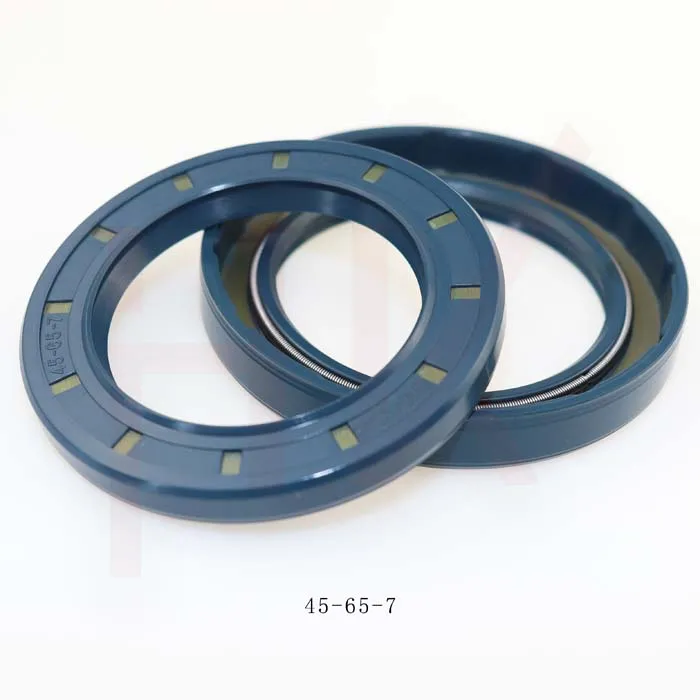Nov . 12, 2024 08:09 Back to list
hydraulic oil seal material
Understanding Hydraulic Oil Seal Materials Key Considerations and Options
Hydraulic systems are crucial components in various machinery and equipment, enabling the smooth functioning of operations ranging from industrial manufacturing to automotive applications. At the core of these systems are hydraulic oil seals, which play a vital role in preventing fluid leaks and ensuring the efficient transfer of hydraulic energy. The selection of appropriate materials for these seals is essential to enhance durability, performance, and operational safety. This article explores the significance of hydraulic oil seal materials and the key factors that influence their selection.
Importance of Hydraulic Oil Seals
Hydraulic oil seals serve several critical functions in hydraulic systems. They are designed to prevent the escape of hydraulic fluid, protect against contaminants entering the system, reduce wear on moving parts, and maintain pressure within the hydraulic circuit. Given their pivotal role, the choice of material for these seals is of paramount importance. The seal material directly impacts the seal's performance, lifespan, and ability to withstand various operational conditions.
Key Material Considerations
1. Compatibility with Hydraulic Fluids One of the primary considerations when selecting seal materials is their compatibility with the specific hydraulic oil being used. Different hydraulic fluids have varying chemical compositions, which can affect the seal material's integrity. Common hydraulic oils include mineral oils, water-based fluids, and bio-degradable oils, each requiring seals made from materials that can withstand potential chemical reactions.
2. Temperature Resistance Hydraulic systems often operate under extreme temperature conditions. Therefore, the chosen seal material must possess excellent temperature resistance to ensure performance stability. For high-temperature applications, materials like nitrile rubber (NBR), fluorocarbon rubber (FKM), and silicone rubber are commonly used because of their ability to retain elasticity and strength at elevated temperatures.
3. Mechanical Properties The mechanical strength of seal materials is crucial as seals are subject to dynamic stresses during operation. Materials such as polyurethane (PU) provide high tensile strength and resilience, making them suitable for demanding applications. The hardness of the material also plays a role; harder materials may offer greater wear resistance, while softer materials may provide better sealing performance.
hydraulic oil seal material

4. Environmental Resistance Hydraulic systems may be exposed to harsh environmental conditions, including ultraviolet (UV) radiation, ozone, and moisture. Selecting seal materials with inherent resistance to such environmental factors can prolong the lifespan of the seals and prevent premature failure. For instance, silicone and fluorosilicone materials demonstrate excellent UV and ozone resistance, making them suitable for outdoor applications.
5. Cost-effectiveness While performance is essential, cost remains a significant factor in material selection. Manufacturers must balance the upfront costs of high-performance materials with their long-term operational benefits, such as reduced maintenance and replacement frequency.
Common Hydraulic Oil Seal Materials
Several materials are commonly used in hydraulic oil seal manufacturing
- Nitrile Rubber (NBR) Known for its excellent oil resistance and mechanical strength, NBR is widely used in general-purpose hydraulic seals. - Fluorocarbon Rubber (FKM) Suitable for high-temperature and aggressive chemical environments, FKM seals offer superior abrasion resistance.
- Polyurethane (PU) Offers high wear resistance and versatility, making it ideal for high-pressure applications where durability is essential.
- Silicone Rubber Best suited for high-temperature applications where flexibility and environmental resistance are critical.
In conclusion, the choice of hydraulic oil seal materials is integral to the efficient operation of hydraulic systems. By considering factors such as fluid compatibility, temperature resistance, mechanical properties, environmental resistance, and cost-effectiveness, manufacturers can select materials that enhance the performance and longevity of hydraulic seals. Understanding these materials and their properties is essential for ensuring reliable hydraulic system performance across various applications.
-
TCN Oil Seal Metal Ring Reinforcement for Heavy Machinery
NewsJul.25,2025
-
Rotary Lip Seal Spring-Loaded Design for High-Speed Applications
NewsJul.25,2025
-
Hydraulic Cylinder Seals Polyurethane Material for High-Impact Jobs
NewsJul.25,2025
-
High Pressure Oil Seal Polyurethane Coating Wear Resistance
NewsJul.25,2025
-
Dust Proof Seal Double Lip Design for Construction Equipment
NewsJul.25,2025
-
Hub Seal Polyurethane Wear Resistance in Agricultural Vehicles
NewsJul.25,2025
-
The Trans-formative Journey of Wheel Hub Oil Seals
NewsJun.06,2025
Products categories
















